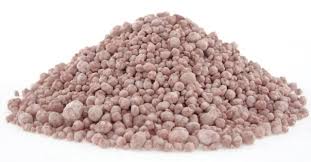
सितम्बर . 25, 2024 22:28 Back to list
what is nitrogen fertilizer
What is Nitrogen Fertilizer?
Nitrogen fertilizer is a type of fertilizer that primarily provides nitrogen to plants, an essential nutrient for their growth and development. Nitrogen is a critical component of amino acids, proteins, nucleic acids, and chlorophyll, all of which play vital roles in the physiological processes of plants. In agriculture, nitrogen fertilizers are widely used to enhance crop yields and improve the quality of various agricultural products. This article explores the types, benefits, and environmental implications of nitrogen fertilizers.
Types of Nitrogen Fertilizers
Nitrogen fertilizers can be classified into several categories based on their source and chemical composition. The three main types are
1. Synthetic Nitrogen Fertilizers These are chemically formulated fertilizers that provide an immediate supply of nitrogen. Common synthetic nitrogen fertilizers include urea, ammonium nitrate, and calcium ammonium nitrate. Urea is one of the most widely used nitrogen fertilizers and contains about 46% nitrogen by weight. Ammonium nitrate, containing approximately 34% nitrogen, is favored for its quick availability to plants.
2. Organic Nitrogen Fertilizers Derived from natural sources, organic nitrogen fertilizers include animal manures, composts, and plant-based materials. These types of fertilizers release nitrogen more slowly, providing a sustained nutrient supply over an extended period. Organic fertilizers not only supply nitrogen but also improve soil structure and enhance microbial activity.
3. Biological Nitrogen Fixation Certain plants, particularly legumes, have the ability to fix atmospheric nitrogen through symbiotic relationships with specific bacteria. This natural process reduces the need for synthetic nitrogen fertilizers and enhances soil fertility over time.
Benefits of Nitrogen Fertilizers
The use of nitrogen fertilizers in agriculture offers several advantages
1. Increased Crop Yield Nitrogen is a key nutrient that directly affects plant growth and development. Adequate nitrogen supply can significantly improve crop yields, making it essential for feeding the growing global population.
what is nitrogen fertilizer

2. Enhanced Plant Health Nitrogen plays a crucial role in chlorophyll production, which is necessary for photosynthesis. A sufficient amount of nitrogen helps plants develop lush green foliage and robust structures, improving overall health and resistance to diseases.
3. Improved Economic Returns Farmers who utilize nitrogen fertilizers often experience higher productivity and profitability. Increased crop yields can lead to better income and economic stability for agricultural producers.
Environmental Implications
While nitrogen fertilizers provide numerous benefits, their usage also raises environmental concerns. Key issues include
1. Water Pollution Excessive use of nitrogen fertilizers can result in runoff into nearby water bodies, leading to eutrophication. This process causes algal blooms, which deplete oxygen in water, harming aquatic life and degrading water quality.
2. Soil Degradation Over-reliance on synthetic nitrogen fertilizers may lead to soil acidification and a decline in soil health over time. It can disrupt the natural microbial ecosystem, resulting in reduced biodiversity and soil fertility.
3. Greenhouse Gas Emissions The production and application of nitrogen fertilizers contribute to greenhouse gas emissions, including nitrous oxide, a potent greenhouse gas. Sustainable practices are required to mitigate these emissions and combat climate change.
Conclusion
Nitrogen fertilizers play a critical role in modern agriculture by enhancing crop yields and supporting the health of plants. However, the challenges associated with their use necessitate careful management and consideration of sustainable practices. To achieve a balance between productivity and environmental protection, farmers and agricultural stakeholders are encouraged to adopt integrated nutrient management strategies, use organic fertilizers, and practice precision agriculture. By doing so, we can ensure sustainable food production while safeguarding our planet's ecosystems for future generations.
-
10 10 10 Fertilizer Organic—Balanced NPK for All Plants
NewsJul.30,2025
-
Premium 10 10 10 Fertilizer Organic for Balanced Plant Growth
NewsJul.29,2025
-
Premium 10 10 10 Fertilizer Organic for Balanced Plant Growth
NewsJul.29,2025
-
Premium 10 10 10 Fertilizer Organic for Balanced Plant Growth
NewsJul.29,2025
-
50 Pound Bags of 13-13-13 Fertilizer for All Plants – Bulk & Organic Options
NewsJul.28,2025
-
High-Efficiency 15-30-15 Granular Fertilizer for Healthy Crops
NewsJul.28,2025
